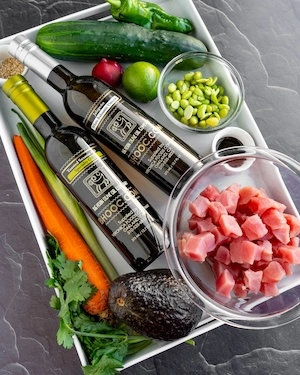Homemade Dill Pickle Vodka Recipe
Ingredients:
Homemade Dill Pickle Brine Recipe:
Instructions:
Food Safety Considerations:
Notes:
Who this recipe is good for:
Who this recipe is bad for:
Rediscover the joy of eating!...
...with award-winning, fresh harvest, extra virgin olive oil.
Shop now
